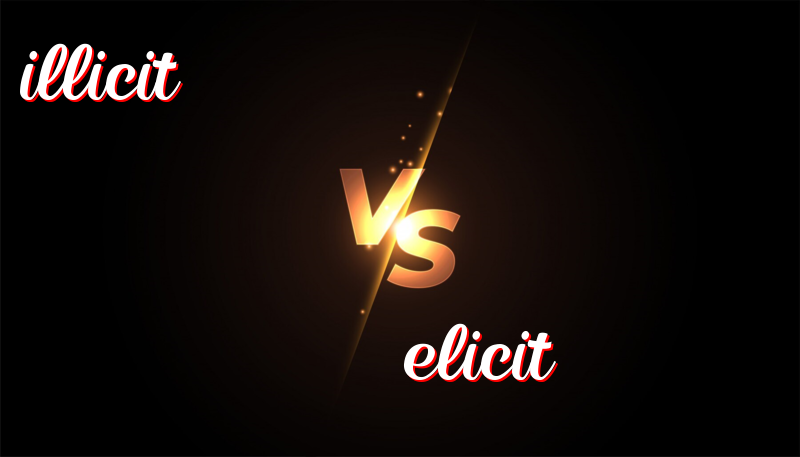Illicit vs. Elicit: Understanding the Difference
November 17, 2024
Illicit vs. Elicit: Knowing the Difference
The words “illicit” and “elicit” sound alike, but they mean different things. Let’s learn more about them!
History of the Words
- Illicit: This word comes from an old Latin word “illicitus.” It means something not allowed or illegal. It has been used in English since the 15th century.
- Elicit: This word comes from the Latin “elicere,” which means to draw out or bring forth. It has been used in English since the 17th century.
How to Use Them
- Illicit: Use this word when you talk about something that is against the rules or illegal.
- Elicit: Use this word when you want to bring out a response, feeling, or answer.
Trick to Remember the Difference
Remember, “Illicit” is ill (like the word illegal) because it is not allowed. “Elicit” is elicit (like the word evoke) because it draws out something.
Examples of “Illicit”
- Stealing is an illicit act.
- The police found an illicit drug in the car.
- Making illicit copies of a movie is wrong.
- The gang was involved in illicit activities.
- He was caught with illicit goods at the border.
Examples of “Elicit”
- The teacher tried to elicit answers from the students.
- Her speech elicited cheers from the crowd.
- The joke elicited a laugh from everyone.
- The news elicited a strong reaction from the people.
- He wanted to elicit more information from the witness.
Summary
Remember, “illicit” means something that is not allowed and is illegal or bad. “Elicit” means to bring something forth, like a response or reaction. Use them correctly to express what you mean!

Leave a Reply
You must be logged in to post a comment.